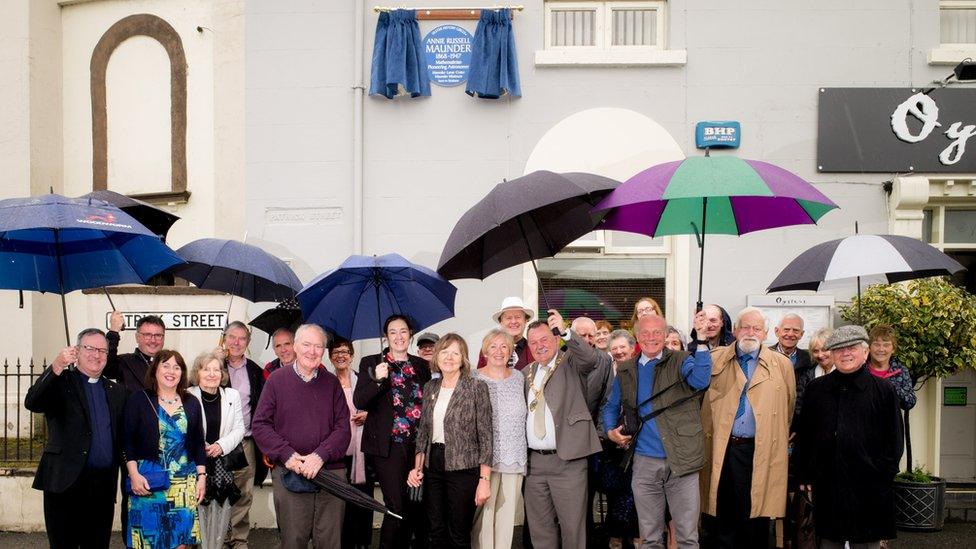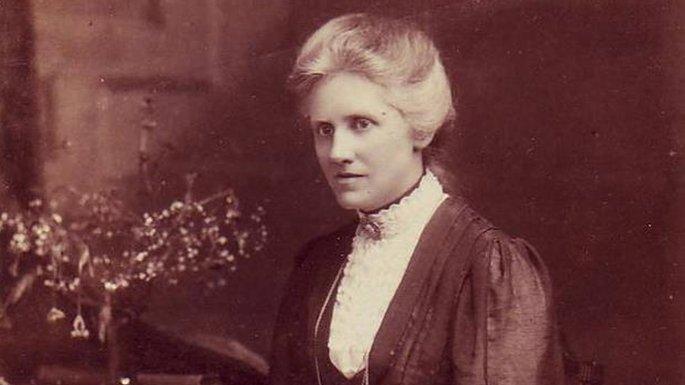Annie Maunder: Plaque for 'forgotten woman' of science
- Published
Annie Maunder: Plaque for 'forgotten woman' of science
A blue plaque has been unveiled to County Tyrone woman Annie Maunder to acknowledge her contribution to the world of science.
Born in Strabane, Annie Scott Dill Russell later won a scholarship to Girton College, Cambridge.
She became one of the first female scientists to work at the Royal Observatory, Greenwich.
Annie married astronomer Edward Walter Maunder and worked alongside him recording the dark spots on the sun.
The Maunders went on many expeditions to observe eclipses and published their research culminating in the 'Maunder Minimum'.
Speaking to BBC Radio Foyle, the Maunder's great granddaughter Dorrie Giles explained that the conventions of the time meant that much of Annie's work was not fully attributed to her.
Allow X content?
This article contains content provided by X. We ask for your permission before anything is loaded, as they may be using cookies and other technologies. You may want to read X’s cookie policy, external and privacy policy, external before accepting. To view this content choose ‘accept and continue’.
"Books tended to be published in Walter's name because although she went to Cambridge university and got the best mathematics degree, at that time women were not given degrees.
"They were very much a team and Annie went on all the expeditions to see the solar eclipses," Ms Giles added.

The ceremony was attended by Annie's great granddaughter by marriage, Dorrie Giles.
The Royal Astronomical Society appointed Annie Maunder as a fellow in 1916, 24 years after her name was first put forward.
Welcoming the blue plaque in Strabane, Ms Giles believes women scientists should be encouraged more to "get their message out there and make it seem possible for young women to go into science and stick with it".
"It gives young women the confidence to believe they have something to contribute. I think it is something Annie felt very passionate about," she added.
More on Annie Maunder and other female pioneers of science:
Listen to a radio documentary from BBC Radio Ulster on Annie Maunder - The Lady Computer of Strabane
- Published5 October 2016

- Published12 April 2017
